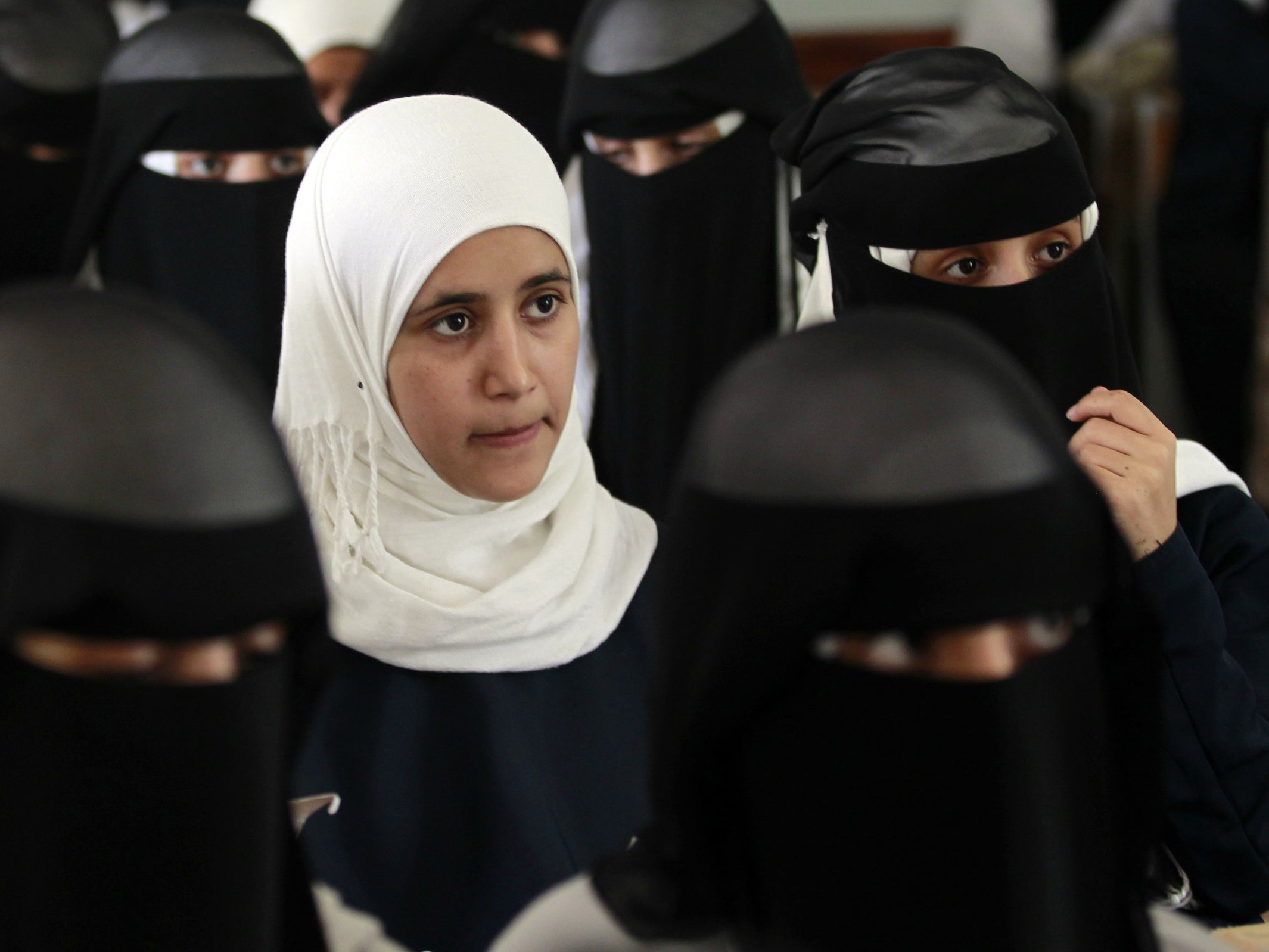EU's top judge backs workplace ban on headscarves
The advocate general said headscarves could be banned by employers as long as other religious and political symbols were forbidden in the workplace

Your support helps us to tell the story
From reproductive rights to climate change to Big Tech, The Independent is on the ground when the story is developing. Whether it's investigating the financials of Elon Musk's pro-Trump PAC or producing our latest documentary, 'The A Word', which shines a light on the American women fighting for reproductive rights, we know how important it is to parse out the facts from the messaging.
At such a critical moment in US history, we need reporters on the ground. Your donation allows us to keep sending journalists to speak to both sides of the story.
The Independent is trusted by Americans across the entire political spectrum. And unlike many other quality news outlets, we choose not to lock Americans out of our reporting and analysis with paywalls. We believe quality journalism should be available to everyone, paid for by those who can afford it.
Your support makes all the difference.Companies may ban Muslim employees from wearing headscarves as long as they also forbid other religious and political symbols in the workplace, an adviser to the European Court of Justice has said.
The case concerns a compensation claim from a woman working as a receptionist for the Belgian company G4S Secure Solutions, who was dismissed from her job for wearing a headscarf for religious reasons.
The company already placed a general ban on wearing visible religious or political symbols.
The European Court of Justice was asked whether forbidding the headscarf violated an EU law prohibiting discrimination on the basis of religion.
"While an employee cannot 'leave' his sex, skin colour, ethnicity, sexual orientation, age or disability 'at the door' upon entering his employer's premises, he may be expected to moderate the exercise of his religion in the workplace," Juliane Kokott, the EU court's advocate general, wrote in her opinion published on Tuesday.
The advocate general's findings are only an initial view and not binding, but the EU court typically follows the adviser's recommendation.
A ruling from the European Court of Justice is expected later this year. Belgian’s court of cassation, who referred the case to the EU’s top court, will rule on the matter thereafter.
The woman had reportedly worked for three years at G4S Belgium when she insisted on being allowed to wear the headscarf. She took legal action backed by a Belgian racial equality organisation but the case was dismissed by two lower courts, AFP reports.
Wearing headscarves and full-face veils is an increasingly contentious issue in some European countries, particularly in France which attaches importance to the separation of state and religious institutions.
France brought in a ban on full-face veils in 2010 and there are already some headscarf bans in schools and public institutions in Belgium. Last year, however, Germany's top court quashed a ban on teachers wearing headscarves in schools.
Additional reporting by Reuters
Join our commenting forum
Join thought-provoking conversations, follow other Independent readers and see their replies
Comments